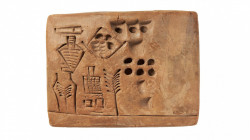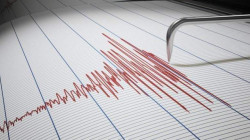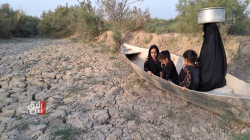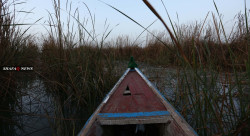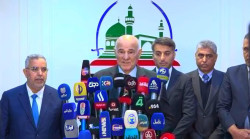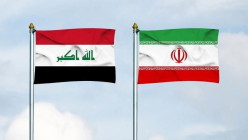Iraq's marshlands in peril: Drought crisis and urgent solutions
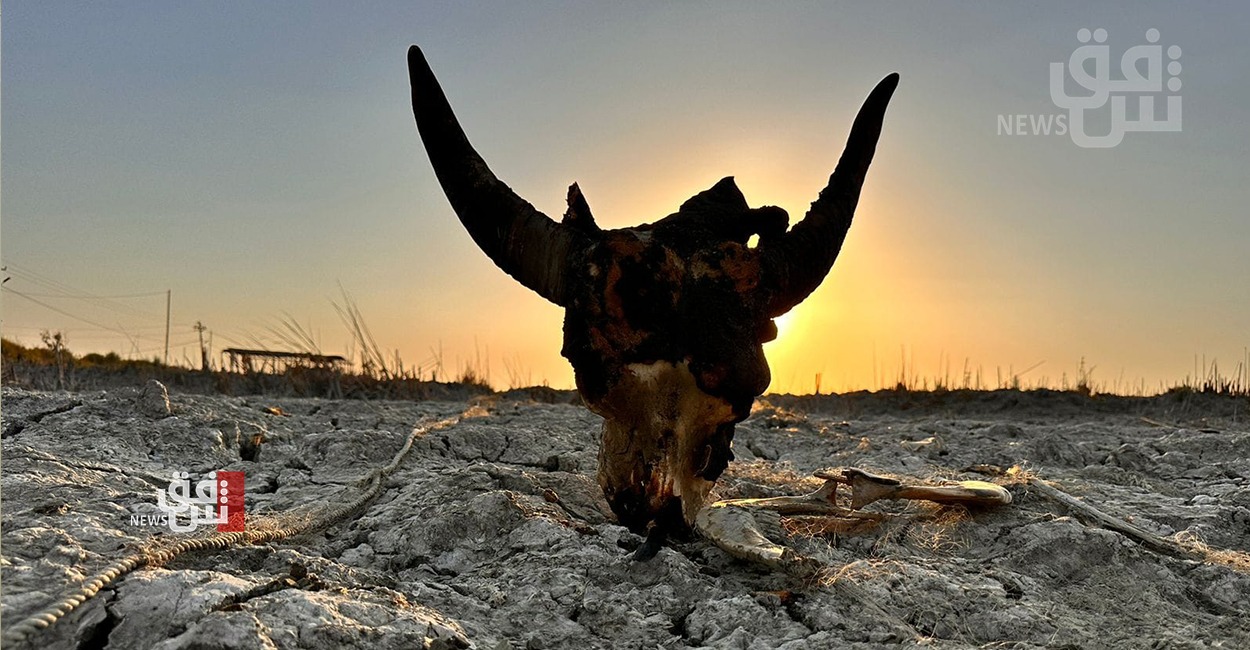
Shafaq News / Kadhim, in his seventies, now faces an unfortunate dilemma as he grapples with the crippling economic blow that has shattered his livelihood. He gazes upon his hands, a gesture of despair that mirrors the dire situation that unfolded over a few short months. This grim predicament stems from the rampant drought ravaging the agricultural, animal, and aquatic resources, along with the fragile biodiversity, in southern Iraq.
According to the United Nations, Iraq ranks fifth among the countries most affected by climate change. Since 2020, the country has been confronting an escalating water crisis due to dwindling rainfall and the "water war" waged by upstream nations (Turkey, Iran, and Syria). This crisis culminated this year, with the Tigris and Euphrates rivers plunging to unprecedented depths.
Riverbeds have dried up in some regions, rendering water treatment plants inoperable. Water levels have plummeted to under half a meter in places, accompanied by a significant decline in lakes and reservoirs, transforming once-thriving southern marshlands into arid expanses.
Daily losses:
In the Chibayish district, situated south of the Dhi Qar governorate and often dubbed the "Venice of Iraq" due to its sprawling marshlands and traditional wooden boats, Kadhim's heartrending tale paints a harsh reality. "Our family's vital animal wealth, essential for survival, faces daily obliteration due to severe water scarcity. We have already lost 16 water buffaloes."
With a heavy sigh, he continued, "Our plight worsens by the day. The marshes are parched, and timely government aid is elusive. We are left with no choice but to rely on water tanker trucks to secure this precious resource for our surviving buffalo."
"The cost of sustaining our water buffaloes has surged as the drought's grip tightens. Now exceeding 25,000 Iraqi dinars daily, this expense escalates in tandem with the intensifying drought crisis."
Economic devastation:
The local government of the Chibayish district has unveiled an official report, sent to the General Secretariat of the Council of Ministers, which revealed the extent of the economic losses suffered by cattle breeders in the governorate.
According to the report, the number of water buffaloes and cows that perished during the past year reached 7,509, due to the significant decline in water levels in the marshlands. This led to animals getting trapped in the mud as soon as they entered the marshes, making it difficult to rescue them.
Experts in livestock prices, after reviewing the government report, explained to the Shafaq News Agency that the financial losses incurred by the marshland residents exceed 17 billion Iraqi dinars (over 11.333 million dollars).
These experts consider this to be a "terrifying figure," as it is challenging to compensate for it in the immediate future and might require years to mitigate its effects by restoring the natural animal wealth to its former state.
Harsh reality of migration:
The Chibayish Organization for Tourism and Environment in the Marshlands solemnly declared that the once-vibrant wetlands are no longer hospitable for human habitation. The devastating impact of drought, coupled with soaring salinity levels stemming from inadequate water releases, has rendered them inhospitable.
Raad al-Asadi, the organization's president, stated to the Shafaq News Agency, "The marshlands face a genuine economic catastrophe. These regions rely on water buffalo breeding and fishing, both critically dependent on water availability. With the onset of drought, these resources are at risk of vanishing."
He added, "The drought has forced 80% of the marshlands' population to migrate to distant areas. The mass deaths of fish and livestock, particularly water buffaloes, jeopardize the marshlands' biodiversity, constituting one of the most significant environmental disasters to strike Iraq in recent years."
Al-Asadi stressed, "Water buffaloes, the cornerstone of the marshlands' economy, facing neglect and depletion in this manner, represent a calamity for the country. Iraq's animal wealth is at stake."
Recurring water crisis and proposed solutions:
Badeea’ Lebanon al-Khayoun, a former local official in the Chibayish district and a current member of the committee overseeing the Marshlands file, emphasized that the cyclic drought requires the attention of higher government bodies. Foremost among the potential solutions is establishing a National Water Council, led by experts independent of favoritism or partisan affiliations.
Al-Khayoun pointed out, "This council would negotiate with Turkey to secure Iraq's water share, as the country's primary concern lies in external water issues. Iraq's northern neighbor provides less than 10% of the designated share."
He elaborated, "A prime example of Turkey not allocating Iraq's rightful water share is the 1987 agreement. Turkey was meant to release 290 cubic meters per second, but it presently releases 137 cubic meters. whereas the Haditha dam releases 190 cubic meters per second to areas it irrigates. This exhaustion of water reservoirs is a significant catastrophe."
Al-Khayoun concluded, "Iraq faces one of its direst water crises ever, tapping into strategic reserves. An internal water distribution problem persists. Iraq should adopt the 'Swirly' plan, outlining scenarios for water management: wet, dry, and extremely dry years."
"The current lack of adherence to this plan, coupled with unequal distribution, results in inefficient water use and the absence of a clear strategy to preserve and sustain the marshlands."
He urged federal authorities to adopt solutions like "establishing a National Water Council and adopting the 'Swirly' plan to ensure water reaching the marshlands, revitalizing its ecological vitality."
